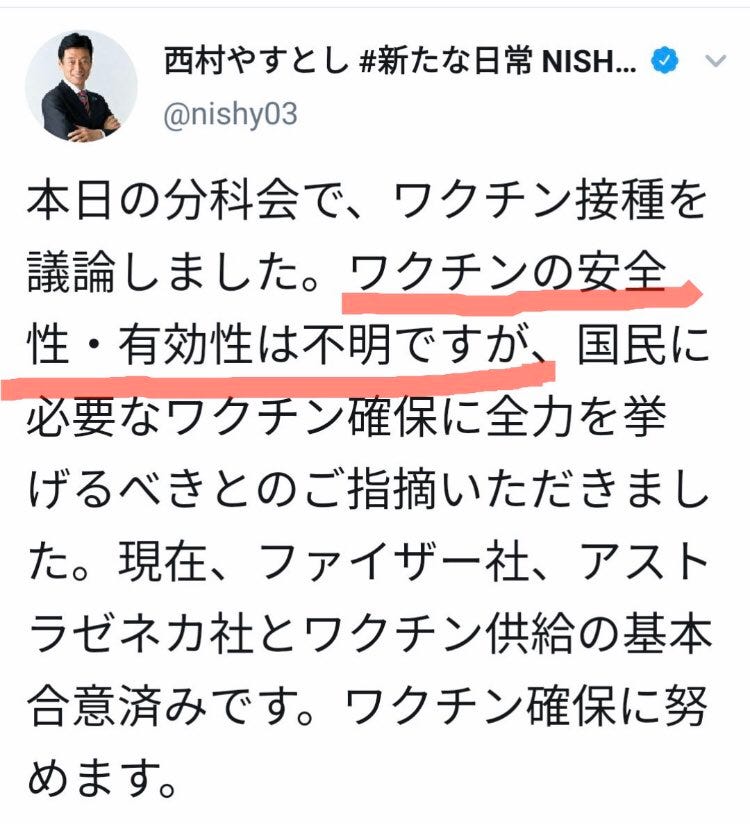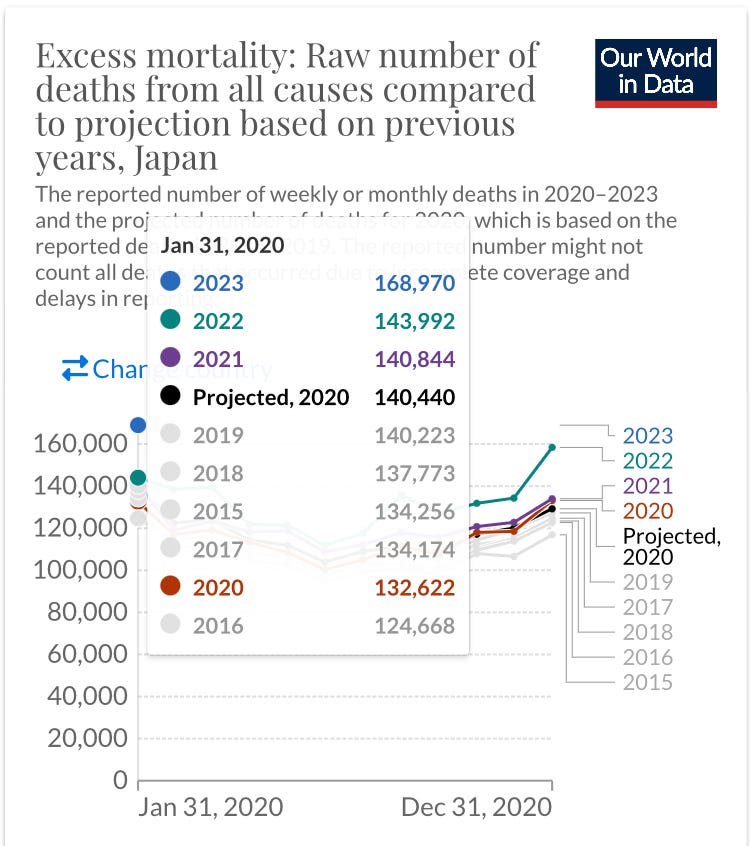Sounding somewhat like your yen-pinching correspondent, the Audit Board of Japan recently released a report questioning the wisdom of the Ministry of Health, Labour and Welfare’s (MHLW) procurement choices.
You mean to tell me that ordering over 7 jabs for every citizen had a “weak basis”? If only someone had noticed before now.
Japan's audit board has requested the health ministry provide supporting documentation for contracts with U.S and British coronavirus vaccine manufacturers after finding a weak basis for ordering a total of 882 million doses in fiscal 2020 and 2021.
The report released Wednesday by the Board of Audit of Japan also found that at least 30 percent of the doses were either canceled or disposed of after expiring.
The Asahi Shimbun has more details.
A Board of Audit official who handled the matter said the lack of written documentation made it impossible to determine if the 882 million shots were excessive, insufficient or appropriate.
That’s a polite way of saying the MHLW let the vax makers take Japanese taxpayers for a ride.
The total cost of the vaccination project was 4.202 trillion yen ($31.7 billion), with 2.403 trillion yen going to pay for the vaccines. Subsidies totaling 1.714 trillion yen were paid to local governments that handled the actual vaccination of residents.
But the Board of Audit report also stated that health ministry documents did not contain an adequate basis for determining how the volume of vaccines secured was calculated.
Comparing the MHLW to a drunken sailor would be an insult to drunks and sailors.
From October 2020, the government signed contracts with four foreign pharmaceutical companies for the vaccines because no domestic company had succeeded in developing an effective vaccine.
Because nations around the world were trying to acquire the vaccines, the health ministry signed the contracts even before the companies had successfully developed them and they were approved for domestic use.
Health ministry officials told them the plan to secure the vaccines was intended to ensure they would have enough for the population even if a certain company failed to develop a vaccine, according to Board of Audit officials.
“Enough for the population”? Considering Covid’s low fatality rate in Japan before the jabs, 882 experimental shots would’ve been excessive, let along 822 million.
But we can’t say we weren’t warned. In mid-2020, then Economic Revitalisation Minister Yasutoshi Nishiyama admitted in a subsequently deleted tweet that the government was committed to buying large amounts of whatever the vax makers were making and wasn’t going to be particularly picky about quality.
Translation: “At today’s Experts Committee meeting, we discussed vaccines. Although the vaccines’ safety and effectiveness are unclear, the experts pointed out that we should do all we can to secure the necessary amount of vaccines for the population. Currently, we’ve made basic agreements with Pfizer and AstraZeneca for the supply of vaccines. We’ll make efforts to secure vaccines.”
Inevitably, the government has responded to the Audit Board’s report by saying “The efforts taken to secure vaccines were necessary” because of the international competition to secure supply in 2020 and 2021.
But because Japan is even now in 2023 still taking in Pfizer/BioNTech’s excess inventory, the MHLW is still pushing jabs for kids even after the WHO has admitted healthy children don’t need them.
But am I being too stingy complaining about the $31.7 billion vaccine bill? After all, who can put a price on life? Yeah, about that. All-cause deaths in Japan were up 17% year-on-year in January.
It looks like the cost of the jabs wasn’t just financial.






“the lack of written documentation made it impossible to determine if the 882 million shots were excessive, insufficient or appropriate.”!? They document the fauci out of everything here. If this is true, it is because they did not a paper trail leading anywhere embarrassing. Well, more embarrassing than this huge lapse in procedure and “judgement”.
Fewer doses ordered means less in kickbacks. How is that a weak basis? Seems perfectly logical to me.